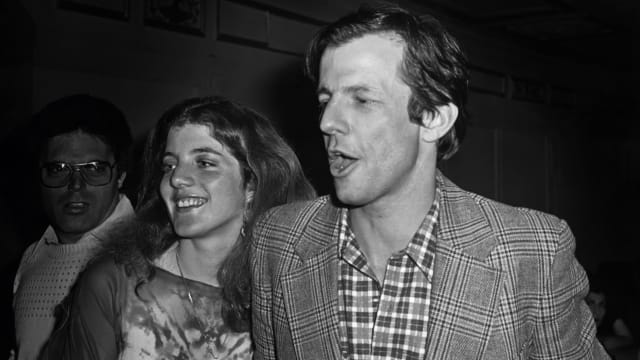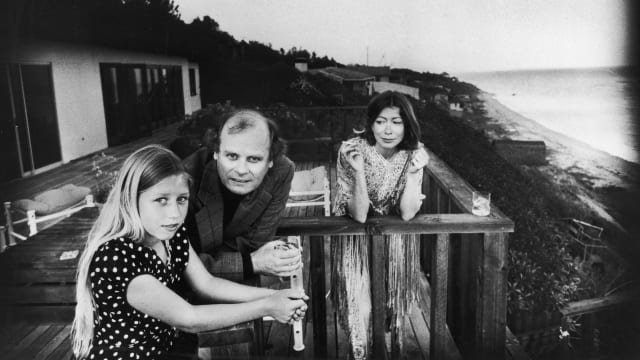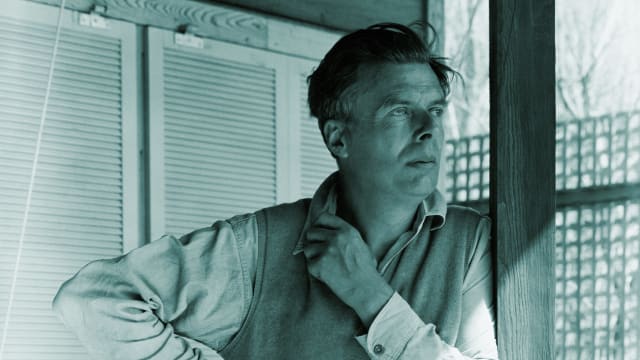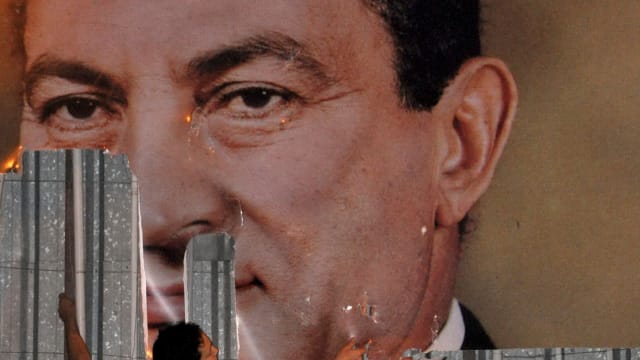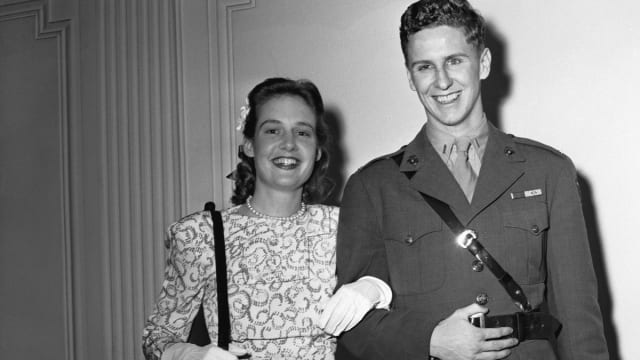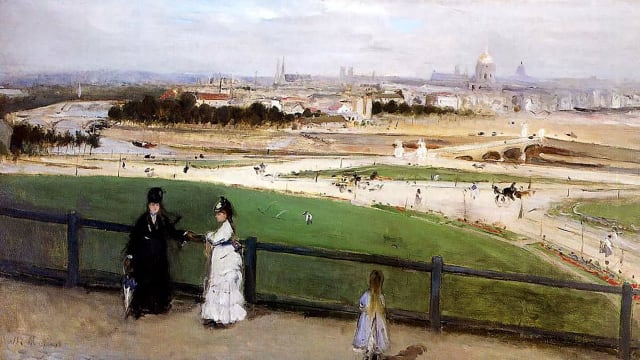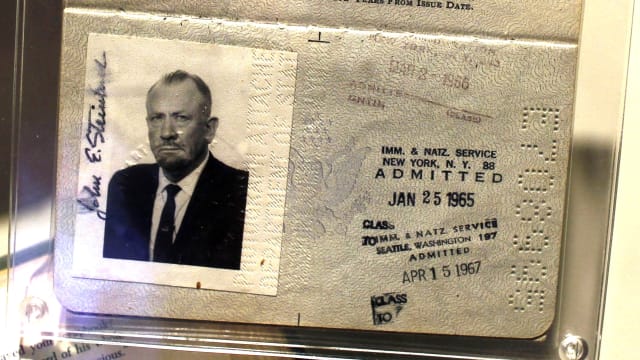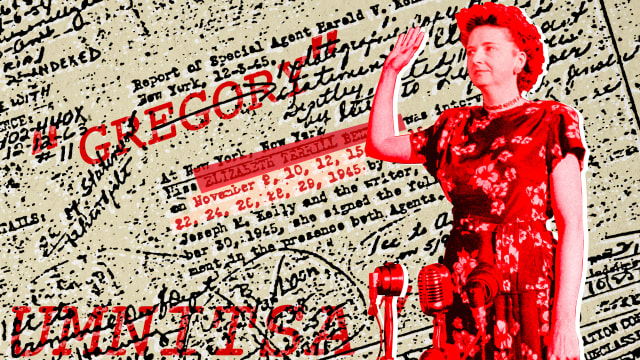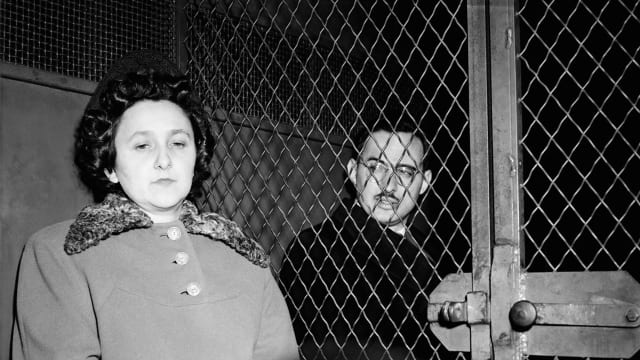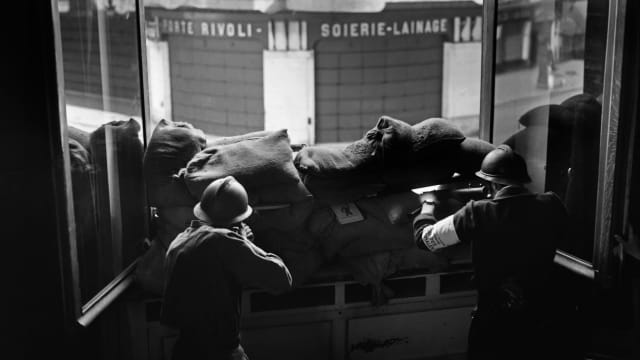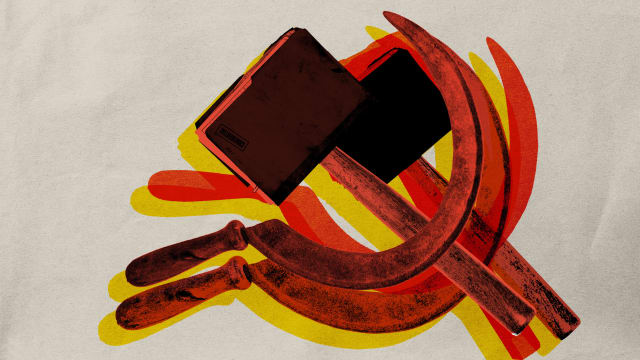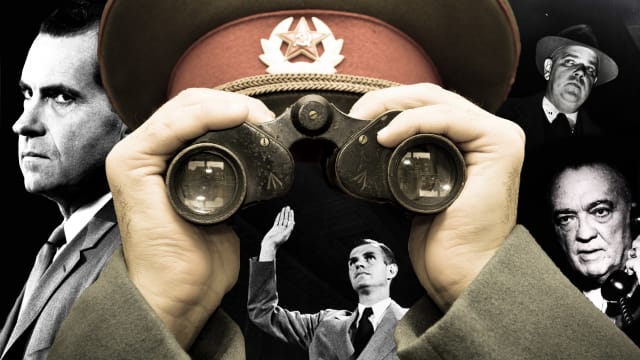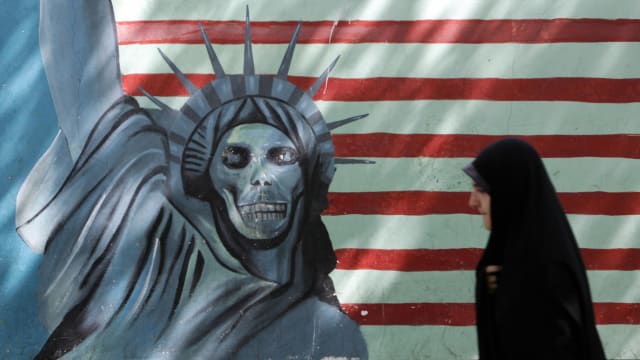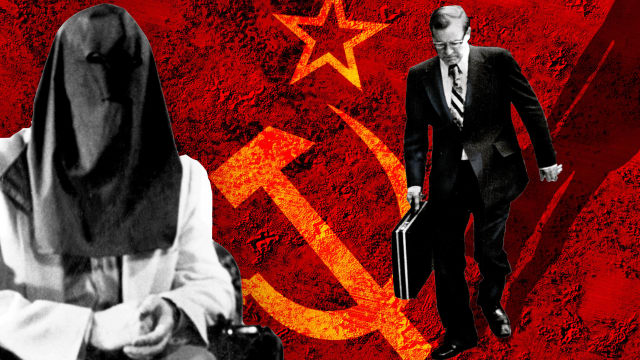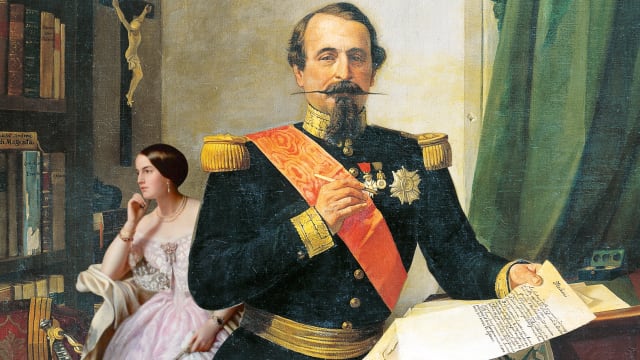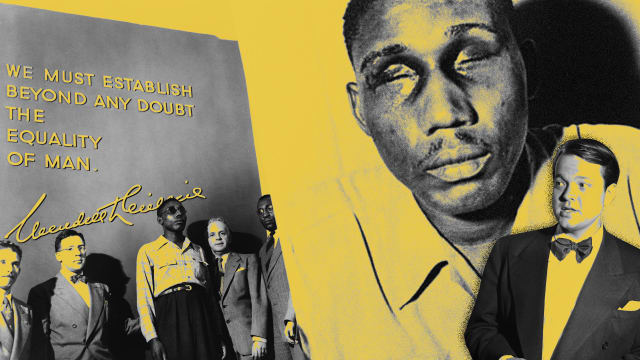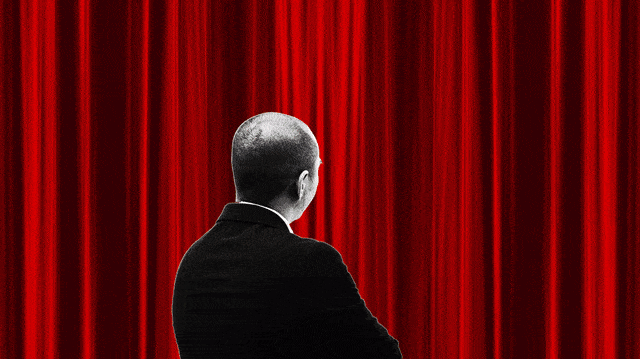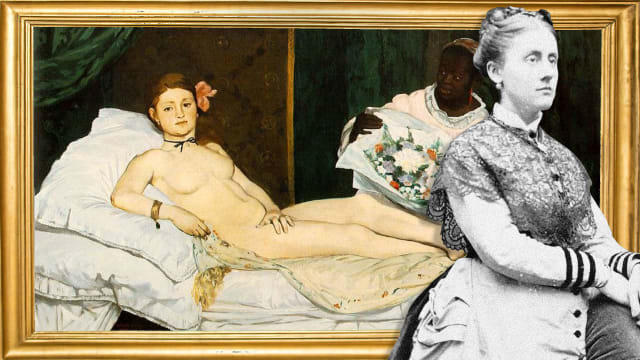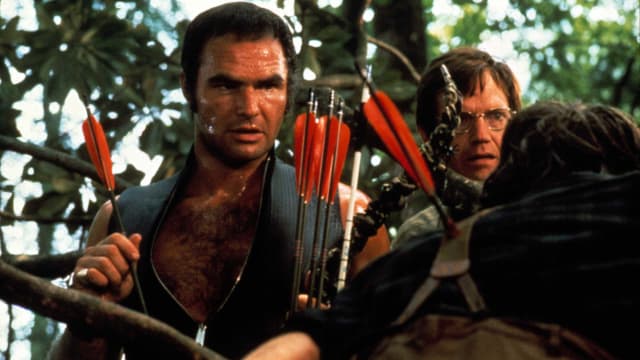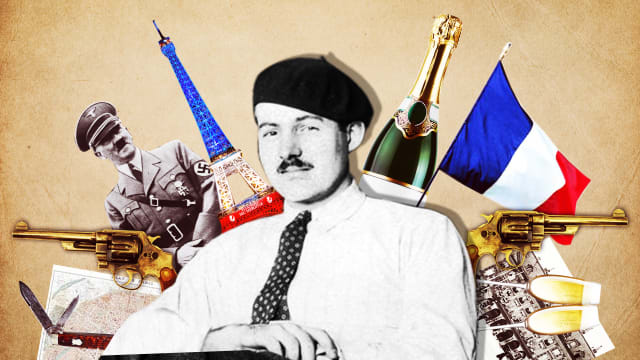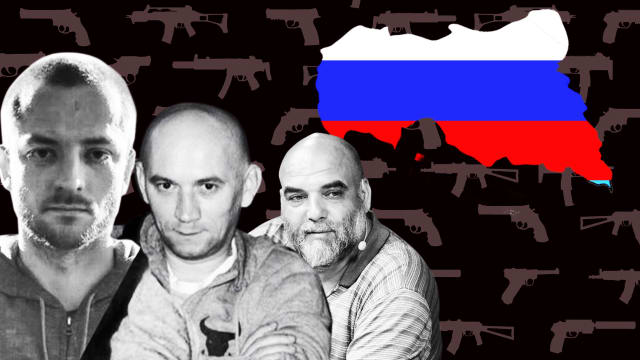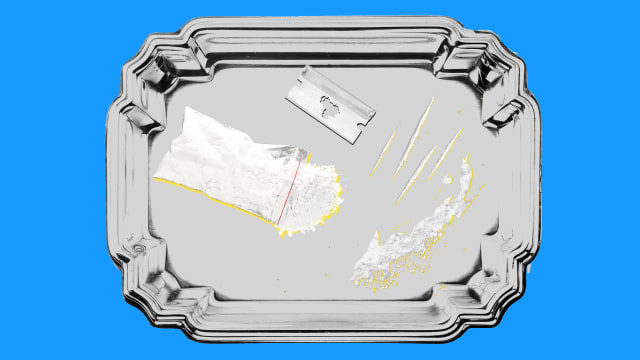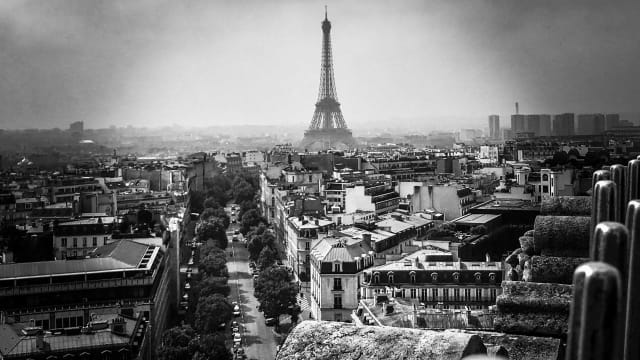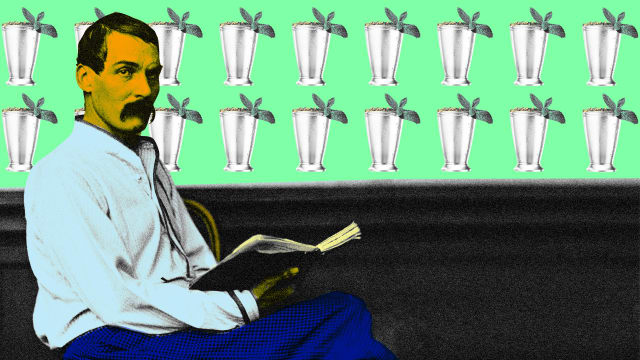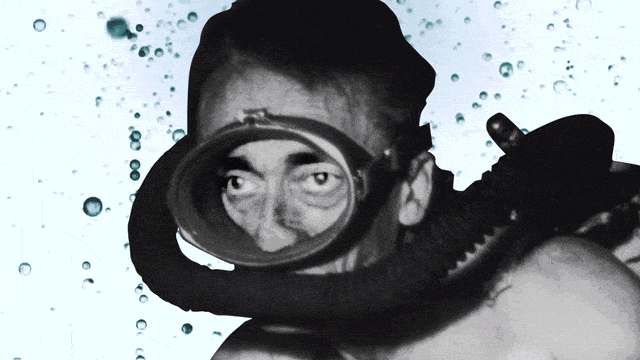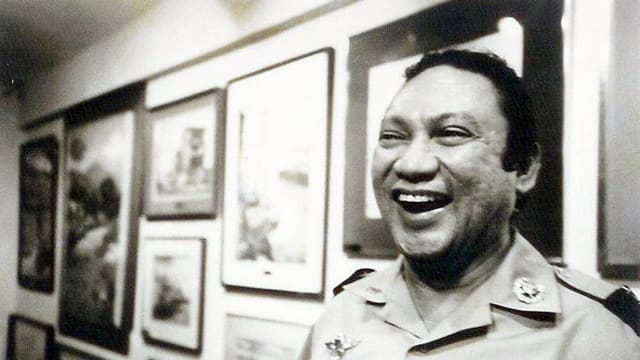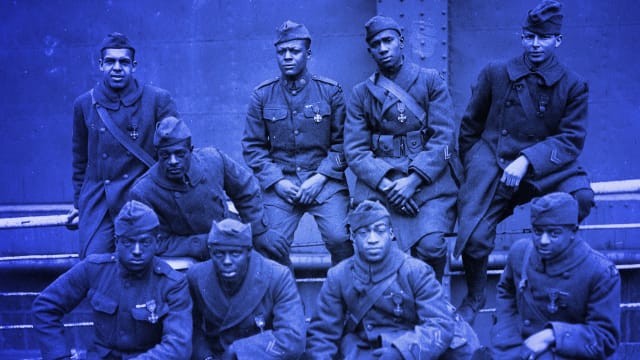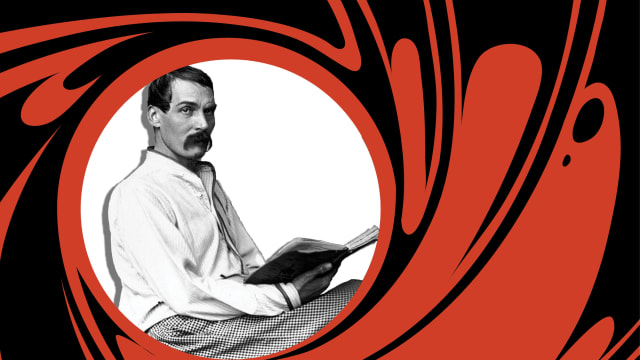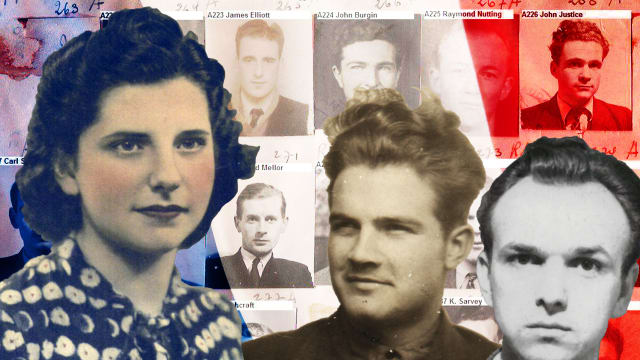|
From Christopher Dickey, the author of "Our Man in Charleston: Britain's Secret Agent in the Civil War South" and "Securing the City," this site provides updates and footnotes on history, espionage, terrorism, fanaticism, policing and counterinsurgency linked to Dickey's columns for The Daily Beast and his other writings; also, occasional dialogues, diatribes, and contributions from friends.
Friday, April 24, 2020
Weekend Reading: Forays Into Friendships and History
Tuesday, April 21, 2020
Killing Men to Save Elephants - the original draft of my story in Rolling Stone, 1990
This is the uncorrected draft of a piece published by Rolling Stone in 1990 which appears to be unavailable on the magazine's site, at least at the moment.
THE ELEPHANT WARS
By Christopher Dickey
Man has reached a point on this planet where he truly needs all the friendship he can find, and in his loneliness he needs all the elephants, all the dogs, all the birds.
Romain Gary, The Roots of Heaven
The Hunters
Kamboya, Tsavo West.
The land has changed since the elephants were here. Bill Woodley looks out from the veranda of the senior warden's house and remembers a forest of low, spreading acacia trees. Now the trees are gone. All that remains is scrub and an expanse of grass stretching toward the horizon that ends at Kilimanjaro.
It was the elephants that changed the land. They devoured and trampled the trees until the earth was bare and dry and dust filled the air. Historical photographs show them moving through a desolate countryside like enormous engines of war. Twenty years ago there were 45,000 of the great rough beasts in this vast national park. But then they, too, were gone. They were decimated first by drought and then by poaching on a scale that Africa had never seen. The poison arrows of the tribes and the bolt-action elephant guns of the great white hunters gave way, in these killing fields, to Kalashnikovs and German G-3 automatic rifles firing NATO 7.62 mm ammunition at 20(ck) rounds per second. By the time Woodley was called back into action at Tsavo, perhaps five thousand elephants were left -- frightened and angry, unpredictable and dangerous.
Woodley was in England. He was 60(ck) years old. Half his stomach was gone to cancer and surgeons. His left eye was sunken and blind and the British doctors had just established there was nothing they could do for it. He was a relic of the old Kenya that almost no one outside of Kenya believed in any more. But he had served in the country's parks since the day they were established in 1948. He was part of a small elite, kin by blood and marriage and vocation, that for 25 years had dominated the great twin parks of Tsavo East and Tsavo West: 8,000 square miles in the southeast corner of the country between Nairobi and Mombasa. No one knew this land like he did. No one could hunt in it like he could. And make no mistake, Bill Woodley loved to hunt.
From the time he was a child, killing Thompson's(ck sp) gazelles for dinner near his mother's shack on the Athi Plain, Woodley was enthralled by the chase. His father died when he was nine and the men Bill found to replace him were among the great white hunters of the day. Theirs was the world that we imagine when we dream of Africa, a blend of bravery and decadence, British eccentricity and fair play, adventure and freedom. It was created a generation earlier by Isak Dinesen and Beryl Markham, Bror Blixen and Denys Finch-Hatton, who would fly their clients down to Tsavo to search out record tuskers as trophies. It was near Voi in what is now Tsavo East that Finch-Hatton crashed and burned and broke the hearts of Kenya's most famous women. Woodley learned to hunt with men who were still part of that world, and he was a natural for it. The year he was nineteen, in 1947, he went to Mozambique and personally killed ninety elephants.
"I was shooting for ivory, shooting for money, but there was no question in those days of slaughtering elephants." There were so many, then. "It was just a different situation altogether. I was doing it legally. We had licenses, and it just happened to be in Mozambique that you could shoot as many elephants as you liked."
But Woodley was not called back to Tsavo in 1988 to hunt elephants.
He takes a short sip from the pint bottle of beer and looks over the late-morning landscape. A family of zebra have wandered onto the dirt road in the middle distance.
"I think my favorite prey -- I better be very careful how I put this -- apart from women" -- he laughs -- "is men." He's serious. "You know what I mean. I think man is the best prey of all because he shoots back. I actually prefer hunting human beings to animals.
"Mind you, a wounded elephant or a wounded lion, that's pretty exciting. The odds are fairly even. You've got to shoot very straight, because if you don't shoot straight, he's got you. And when you hunt him you know it. The same when you're after bandits, or after enemy, whoever they may be. You've just got to be better than they are."
Bill Woodley has always been better than they are. Since he took command of anti-poaching operations here this time his rangers have captured two men alive. They have killed eighteen, but for two months no new elephant carcasses have been found. The trade-off is direct: the lives of men for the lives of animals. But nothing between the hunter and the hunted is simple.
* * *
It is spring and the rains have just begun and the war that I thought I would find in Tsavo has slowed to a halt for the moment. But there is no truce. The fight has gone on now for more than four decades. The prize, the elephant, remains the same. But over the years the poacher, the bandit, the enemy has been changing.
"When did you first hunt men?" I ask.
"Down here," says Woodley, rising from the bench where we've been talking. "Let me just go send for Elui."
Woodley goes into the house to make a phone call. I walk out onto the rough lawn. There is mold growing on the massive horns of a buffalo skull that leans against the veranda. A tortoise's shell on the brick ledge is cracked and its plates are peeling off. Stepping back, I can see the sleeping porch on the second floor. Mosquito nets are tied up over the beds like Victorian bonnets. On one wall a poster of Marilyn Monroe has faded in the sun. Beside it, as decoration, is a silhouette target of a human figure.
A few minutes later, the old black hunter arrives.
He was one of the first men Woodley hunted. I have seen pictures of him taken 40 years ago, staring straight into the camera and holding before him two lethal arrows, their heads as sharp as razors, their shafts coated with poisonous resins. He is of the Kamba, a tribe that ranged the Tsavo scrub and forests for generations, taking leopard and other cats, killing the occasional elephant, living off the land until Nairobi declared it a National Park in 1948 and Woodley went to work here. Elui Nthengi knew the bush much better than Woodley, but he was easy to capture. "He is deaf," explains the old white hunter, "and he wasn't expecting to be caught. He didn't know he was in the park. He didn't even know the park existed. This was all something new. I mean, how many chaps knew this huge piece of land had suddenly become a park? It was a huge happy hunting ground."
Woodley didn't shoot Elui when he came across him near Nzima Springs in 1948. Those were more civilized times, and there was no need. Nor did he send him to jail. There was not enough evidence in Elui's camp to make a case against him. Instead Woodley enlisted his prisoner as a guide, as a tutor, and eventually, Woodley would say, as an adopted father. Together they tracked other men and Elui put him on the trail of the Waliangulu. Their name, in one of the local dialects, meant "meat-eaters." The meat they ate was elephant.
The first extinction at the Tsavo parks was of the Waliangulu culture. They were a unique tribe of hunters whose numbers probably never exceeded 2,000. The early colonialists of Kenya had taken little note of them. They tended to blend in with stronger tribes from the region, adopting their language and dress, betraying little of their own origins. The bond that held them together was the killing of elephants for food and ivory -- and not just what they killed, but how they killed. Their bows were enormous recurves with draw-weights of more than 100 pounds. Their arrows were long and coated with virulent acokanthera poison that made blood froth on contact. Their ability to stalk was legendary. By the time they took aim they were often among the herd, a few feet away from their targets, so close they could see the long lashes of the elephant's eye and the thin cracks in the mud on its skin. They shot for the spleen, because the poison worked quicker that way, though the pain was terrible for the animal. The best of the Waliangulu hunters could kill a hundred elephants a year. Many of the tusks they took weighed more than 150 pounds apiece.
Woodley and the other wardens at Tsavo were fascinated by the tribe -- hunting them, turning them to informers, using them to hunt others, rounding them up one by one. Then the Mau Mau rebellion began. It was the beginning of the independence struggles that swept the length of the continent and chilled the blood of the whites who had made the land their own. The numerous, industrious Kikuyu tribe, the clerks and servants and laborers held in vague contempt by the warrior-loving whites, proved to be fierce and bloody warriors themselves, rising in a wave of terrifying violence. In 1952 colonial Kenya declared a state of emergency, and Bill Woodley took the Waliangulu to war with Her Majesty's forces. The erstwhile poachers were rounded up in groups of 25 and 50 and shipped off for military service. First they were used as trackers, then as accomplices in the counter-insurgency work known as pseudo-terrorism. A tracker would make contact with a group of Mau Mau. White officers, their faces painted black, would hang back. At a signal they would all pull sten-guns from under their coats and an lay waste to the people around them.
It was during the Mau Mau emergency that Woodley learned just how much he liked hunting men. "These were chaps I could understand," he says. "It was forest warfare. You tracked them down, ambushed them. It was a shootout."
By the end of the rebellion, 95 white people had been killed, along with about 2,000 blacks helping them suppress the uprising. Of the Kikuyu insurgents, 11,500 died and 79,000 were detained. Eight years later the man the British had jailed for leading the Mau Mau, Jomo Kenyatta, became the first president of the independent republic of Kenya. Many white Kenyans left the country. But Woodley and his people, white and black, stayed on and stayed together.
* * *
I cannot talk to Elui. He can barely hear, old chap. He has a cold and he coughs and wheezes and spits phlegm as he and Woodley banter in Swahili. "He will show you where he was caught by a crocodile," says his old white friend. Then the wound from the hippo, from the rhino, and lion and leopard, on both arms, both legs. Then the place where he was bitten by a cobra. Now he is hugging himself, showing what it felt like when the python had him. "He has had a full life, this fellow," says Woodley.
The greatest of the old Waliangulu were written about in adventure books as the "elephant people" and lionized in the romance of the old Kenya even as their way of life was obliterated. A scheme in the 1950s to settle them across the Galana River from the remote eastern edge of Tsavo and use them to harvest ivory and meat and skins with guns eventually fell apart. The elephants learned to seek the safety of the park. Rifles were not the Waliangulu weapon of choice. The meat rotted and other tribes despised it. The development project was sold off and became the Galana Game and Cattle Ranch; its principal owner a Texan.
White hunters took on the Waliangulu remnants as trackers and guides, first for the rich men who came to bag trophies, then for photo safaris after all legal hunting was banned in 1977. The old men often showed the tourists the scars that showed they were hard to kill, but one by one, and only rarely from natural causes, they died. Abakuna Tise, a magnificent archer with a fine, kind, satanic face, was killed in the jaws of a hippo before it succumbed to his poison. Others were killed by crocodiles, or by diseases contracted in jails where they were serving time for poaching. They liked to drink palm wine, a few died falling from the branches of the trees while gathering their fermented sap.
By the time the present anti-poaching campaign began, the last of the great Waliangulu and Kamba hunters in Tsavo were old men. A few younger members of Elui's tribe tried to take up arms against the beasts last year, but they had none of the old skills, and none of the luck. "We killed three Kamba," says Woodley, who keeps score. "We wounded one who later died and one got back to tell the story." As fars as poaching was concerned, "that was the end of the Kamba."
* * *
The shifta started coming in the 1970s: Somali raiders, many of them soldiers left over from the bloody Ogaden conflict that ended in 1977. They are a proud, nomadic, warlike people. The consecrated colonial borders between Kenya and the nation of Somalia have never meant much to them. Somali soldiers, Somali deserters and ethnic Somalis from Kenya worked together, and by the late 1970s they were increasingly well armed.
The wars among Africans have been bad for the elephant. The ends of the wars are often worse. The fighting brings in weapons and when the fighting subsides the weapons remain. The soldiers -- once the recipients of salaries and perqs and the pride of their countries -- are suddenly cut loose, often with their rifles in their hands. In the African badlands the quickest way to make money with a gun has always been to take ivory. By the 1970s the incentives for slaughter were stronger than ever. After decades of chaos and corruption ivory had become in effect one of Africa's few hard currencies. It was certainly the only form of wealth available to men in the bush that was worth anything on the world market. Out-of-work soldiers could use their guns to get ivory, and the ivory to get more guns. Meanwhile the price of this white gold was rising fast. From 1968 to 1978 it shot up from $5 to $70 a kilo. By the late 1980s it had risen as high as $150. The United Nations Environment Programme published a pair of graphs in 1989 showing the surge in the price of ivory and the surge in East Africa's arms imports. The trends are parallel, upward and steep.
Bill Woodley reviewed his campaigns. "In '58" -- against the Kamba and Waliangulu archers -- "there was not a poacher left standing." In 1978 a new campaign was called for, but the arms flow to the poachers was just beginning, and many were relatively untrained ethnic Somalis. It was more of an intelligence operation, less of a shootout in the bush. "A lot of the people we caught were actually in Mombasa." But each new resurgence was rougher. "In '81 we had a new start. Not poaching, it was a form of terrorism." A Somali gang was robbing buses and raiding villages. They didn't kill anyone, but in the end most of them were killed. "There were thirteen, we killed nine and captured four." But the pressure was persistent and building and by '83, "we started getting a sort of bad crop of game wardens in Tsavo East again." The price of ivory was so high, the incentive to fight the poachers so low among the poorly paid staff in the parks that they joined in the slaughter of the elephants. And when the supply of animals dwindled the shifta turned to other prey.
* * *
From Woodley's veranda two low sets of hills are clearly visible between the flat grassland and the clouds around Kilimanjaro.
To the left are the hills near Kilaguni Lodge where women in pedal-pushers and men in safari hats drink sugary cocktails and watch the antelope and buffalo wandering down to the water hole. They laugh together in German or Finnish, French, Italian, English. They toss the occasional slice of bread to Marabou storks that stand passive, bald and beggarly, near the dining terrace -- until the lunge for the bread and the fight for the crumbs. The tourists worry about the water, munch their anti-malaria pills, tuck themselves beneath their mosquito nets at night. Their days are spent in "combis," Volkswagen busses where they sit three or four abreast peering at the wildlife around them from a vantage as insulated and safe as the submarine ride at Disneyland.
To the right are the Chyulu Hills, volcanic ridges that separate Tsavo West from the smaller park of Amboseli. The road across the hills used to be well graded, but as the parks surrendered to corruption and indolence in the 1980s the mountains became harder to traverse. Rains created gulleys in the road. The passage became an ordeal. By early 1989, the guest book at the Kilaguni Lodge was filling up with remarks about the "adventurous journey from Amboseli," and expressions of relief on arriving, at last, in Kilaguni.
In April 1989, men with guns started appearing on the road through the Chyulu Hills. In one incident, two German women were wounded, one in the wrist, one through the stomach. A week later, another German woman was shot in the arm and the driver of the little bus caught a bullet in the foot. Tourists were stripped of their valuables, cameras, cash.
On July 29, 1989, Marie Ferraro of Bethany, Connecticutt, was touring the Kenya parks with a group from her state Audubon Society. As they crept over the ruts in the Chyulu Hills road they were confronted by armed men in camouflage uniforms. Later, members of the Connecticutt Audubon society would criticize the governments of both the United States and Kenya for not informing them the trip could be dangerous. But for the previous eleven months the violence in Kenya's parks had been escalating, and not all of it on the Chyulu Hills road. In August 1988 three rangers had been killed in a shootout near Meru and the Kenyan government announced that henceforth its park staff could shoot to kill suspected poachers. Within three months, thirty men had been shot in confrontations with rangers and police. Yet the attacks on tourists continued to mount. A Dutch vacationer was shot in the chest traveling in Meru National Park in September 1988. Two French tourists were killed when they surprised a group of poachers on another back road in Meru in July 1989. The body of a young British woman, Julie Ward, was found burned and mutilated in the Masai Mara; two Americans on a horseback safari were pulled off their animals and beaten there. On the road through the Chyulu Hills the combis often traveled with armed guards riding shotgun, literally, in the front seat. But somehow none of this had made enough of an impression on the folks from Connecticutt to warn them off.
When the men in the road stopped Marie Ferraro's combi caravan and opened fire, the 50-year-old lady from Bethany was turning to talk one of her companions. The bullet cut through her head, as Bill Woodley put it, "from ear to ear."
The Kenyan government was stunned by the speed with which safaris and hotel reservations were cancelled now that an American was the victim. The local press tried to blame the country's bad rap on the international media. New York City was infinitely more dangerous than the Kenyan parks, they insisted. But no one listened. The Connecticutt Audubon Society knows the risks in New York City, and its members don't go there to relax. Now nobody was going to Kenya either.
And the violence went on, and the headlines grew worse. In September 1989 a group of shifta killed George Adamson, a former white hunter, game warden and lion fancier. At 84 he was still living with his prides in the bush of Kora, working on returning lions to the wild, TK years after his late wife Joy had published the best-selling "Born Free." He lived as close to the animals and as far from man as he could get -- except for those people who came to admire his work and his lions. The shifta, who often passed near his refuge, were unwanted and despised. Adamson blamed them for "killing ten of my lions and my wife" in years past. "The Somalis are the most destructive people on earth," he said. "They've turned their own country into a desert and will do the same in Kenya."
Press accounts made the moment of Adamson's death as wild and eccentric as his life. He was rushing to the rescue of one of his drivers and an 18-year-old German girl who was staying with him. They had been on the way to meet a visiting airplane when shifta shot out their tires, broke the legs of the driver with a crowbar and, as the British press said discreetly, started "roughing up" the young woman. Adamson "felt very protective to the girls who used to visit the camp," one of his friends later told the papers. With the wheel of his Land Rover in one hand and his pistol in the other, Adamson charged the shifta and the automatic rifles, dying in a hail of bullets. Two of his assistants who were with him in the car were killed as well. Their names did not figure in the international press.
The international news dispatches dealt only with the killing of white men and women. But the shifta were raiding African villages as well. The local press reported them stealing anything they could find, raping women and boys, abducting bearers for their ivory, murdering those who stood against them.
Late on the night of June 7, 1989, the shifta hit the village of Kasakini, at the eastern edge of the Galana Game and Cattle Ranch. They were looking for Abakuna Gumundi, a 66-year-old Waliangulu. He was one of the best of the tribe's elephant hunters in the old days, was captured by Woodley, worked for a while as a tourist hunter's tracker, and was now retired to lead the life of a village elder statesman and a master of herbal potions. Abakuna had been speaking out against the shifta. Now seven of them surrounded him with their automatic rifles and a potion of their own. They gave him the choice of meeting his ancestors with his head blown off, or drinking the poison. The old man chose the poison. Within minutes the last of the great Waliangulu hunters was dead.
The Prey
The airplane was screaming -- the stall indicator blasting out its alarm as we banked so hard and so low over the small herd of elephants that the machine seemed to pivot on its wing. At the controls was Iain Douglas-Hamilton, a donnish Briton who has made a career documenting the decline of the African elephant. Beside him sat Stephen Gishangi, the present warden of Tsavo East. We had taken off a few minutes before from the little airstrip at Voi. Near the site where Denys Finch-Hatton used to park his biplane there now sat two Kenyan army Hughes 500 helicopters mounted with 7.62 mm doorguns. Light, quick and quiet, they are the least talked about and most effective weapon the parks have in the current campaign. Gishangi had seen them in action and remained vaguely amazed by the spectacle. "Against these poachers you just call them. Puff! Puff! Puff! Ten are dead. Easy job." Gishangi told of a Hughes 500 that took out three men trying to hide behind the trunk of an enormous baobab tree. It circled in on them as easily as an enormous wasp closing in on hapless aphids. "Dangerous things," says Gishangi with a hint of awe.
We were on our way to the Galana Game and Cattle Ranch. Gishangi was about to go on vacation and wanted to say goodbye to his neighbors at the far side of the park. Douglas-Hamilton was flying for research, for fun, and for me, at a reasonable price. We were flying low and slow, sometimes only 35 or 40 feet off the ground. As a reflex we were looking for signs of shifta: perhaps the thin ribbon of smoke from a cooking fire, the mutilated corpses of elephants. Often you can smell the carcasses before you see them, even from the air. The poachers try to hide their kills from the vultures. If not, the heavy-winged scavengers circle like a slow-wheeling whirlwind, gorging on these enormous mountains of offal until they can no longer fly, then littering the area with their own corpses. The spiral of scavengers is like a beacon for park rangers. But even when the corpses are hidden from vultures, the smell of a dead elephant below is unmistakable to the pilot-hunters. When the animals' guts are opened by scavengers they spill mounds of undigested leaves and grasses onto the earth. The stench is unique: rotting meat, rotting vegetation, sickening and sweet.
This morning, for mile after mile, the only signs of life looming ahead in the arid landscape had been enormous termite hills. Made from the same red clay that covered the elephants' bodies, they looked from a distance like the elephants themselves. Then suddenly we spotted the real thing, a couple of old tuskers and a few young -- survivors of the massacre. They trumpeted a warning, then ran from the sound of the plane that spiraled above.
* * *
When we arrived at the Galana Ranch we found David Taylor, the manager, struggling to fix the filter of the swimming pool. The green scum on the surface suggested nobody had made this effort for quite a while. Tourists had long since quit coming. The TK square mile Galana Ranch, recently seized by the government, was falling rapidly into disrepair. Taylor, hail and hearty in his white shirt and shorts, was just biding his time until something else came along. He was happy to have company.
We walked down to his house and sat on the terrace overlooking the Galana River. The conversation soon turned to poaching and to the recent death of Golo Ore, one of the most notorious shifta in region, shot by a police patrol.
"He was armed to the teeth in a full Somali uniform," says Gichangi.
Yes, David knew something about that. "One of our people was used by the police to track him." Seems they got lucky. Their truck had a flat tire and they had to stop for the night. In the morning when the tracker from Galana got up to look around he saw a thread of smoke rising from a cooking fire not far away. The police moved in and started blasting away indiscriminately. Golo Ore, armed with an AK-47, went down on the ground in a classic rifle-range pose. "He died in the shooting position with his finger on the trigger," says Taylor. "No one wanted to go near him." For what seemed like hours the police froze, sure that Golo Ore wouly rise and shoot if they approached too closely. Such was his legendary cunning.
This was a side of the shifta I had not yet heard about. But here on the Galana Ranch they were as common as lions. In years past there had been a modus vivendi worked out. Occasionally, by design as well as accident, there were meetings at remote watering holes between shifta and members of the ranch staff. As long as the shifta did not interfere with ranch operations, the ranch would not interfere with them. But slowly the shifta had grown bolder, come closer. David Taylor had met Golo Ore himself.
It was a quiet evening in November 1988. As the sun set there had been a small herd of elephants bathing in the river below the manager's house, just beyond the little aloe-plant border of the neatly trimmed lawn. The shifta seemed far away.
"I was sitting right in tha chair and they came in the back door," said Taylor, taking us inside to look at the scene of the action. "I was watching a video and around the corner came a rifle barrel. They said put your cigarette out and I put it out." He sat down in the big overstuffed club chair to demonstrate. "And I put my hands up here": flat on the arms, plainly visible.
"Somebody went into the bedroom and Golo said 'Stop that. That's the bwana's stuff. You leave that."
"So they were quite polite?" says Iain Douglas-Hamilton, fascinated by the tale.
"Absolutely." As they walked Taylor up the road toward the ranch offices he realized he had forgotten his cigarettes. They let him go back to get them. "And they asked, 'How are your kids?' And I said how did you know I have kids? They said, 'Oh, we know all about you.'
"I could have been walking up and down the road with people I've known for years. They said, 'You are an old guy, walk at your own speed. We'll go along with you.'"
When they got to the office, Taylor was told to open the safe and the shifta took about 40,000 Kenya shillings, or $2,000, in unclaimed wage packets. "Then they said, 'Lock the door again in case the thieves come in the night.'"
Golo Ore had two specific objectives that night. He wanted the money from the safe and he was looking for two assistant managers who normally worked distant corners of the ranch. The poaching there had become so commonplace and open that the shifta took to killing elephants near the dirt roads, where there was no choice for the staff but to report them. That brought in units of the GSU, the government's paramilitary security police. But they had no transportation and demanded assistance from the ranch staff. The shifta knew the assistant managers had been helping the GSU, and now they had come to find them. Fortunately, they were both away at the time.
The shifta had left radio intact in Taylor's house, knowing it was his only means of contacting the outside world, and knowing he would call the police as soon as they had left. "You call up the GSU. They're just a bunch of women," said Golo Ore. "We don't worry about that." The shiftas had taken some pocket money from Taylor when they seized him. Golo Ore ordered them to give it back. "Count it," he said. All the money was there. The expression on Golo Ore's face was lost in the darkness and Taylor did not want to look too closely. The shifta's words were choked off by coughing for a few moments, "like a real mega-smoker's cough," as Taylor remembered. Then the shifta disappeared into the night.
Back inside his house, he saw, the men who had been left behind had had a party for themselves. Against Golo Ore's orders, they had capped off the evening with some pilfering, but they took the kinds of things that would serve a man in Mombasa or Mogadishu, not in the bush of Tsavo and Galana: a tape recorder, suede loafers with leather soles.
As it happened, Taylor didn't call the GSU right away. He had no way of knowing if the shifta were still around, moving as silently beyond the windows of the house as they had been when they first arrived. "I got smashed on vodka," he said. The next day, and now, it seemed like an odd, sinister dream. He was alive, unharmed. And when you talk about the late Golo Ore and his men, Taylor feels he has to admit "it was a real gentlemanly organization -- in its way."
* * *
Again the stall indicator screams as we bank hard and circle. But this time the elephant beneath us is dead. There is not much of it left, not even the smell. A few bones, some deflated skin, and the ears, spread like the wings of a gray angel next to the shattered skull. "This one is from January," says Gishangi. An anti-poaching operation had been mounted in the escarpment below and surprised a group of shifta. They abandoned their camp and their kills. None of the shifta were confirmed dead, although their chances of survival were remote in that wilderness after losing all their supplies. "One of them left behind a diary," said Gishangi. Bill Woodley had told me about the same captured chronicle. "Nice reading," he had said. The writer was educated. The result was "sort of biblical."
Among the musty files of the Tsavo offices the next day a rough carbon copy was found of the translation. Having heard so much about the evil that shifta do, I thought I'd read a missive from the devil. But Woodley, who loved the humanity of his human prey, was right. Smoothe out the typist's errors, and the story the elephant killers tell is of men lost, lonely and afraid in a strange land. The savage names of the places visited sound mystical, mythical: "We were at Shakaji Valley, and went to Wildena," it begins, on January 1, 1990. "We saw Orormo herdsmen living in the valley. This was 20 days after we left Kulbiyow." The translator tells us that "the writer starts a lovely story about a member of them who had fallen in love with a girl, namely Hiyo Hursan." But the translator has kept that tale for himself and it doesn't appear in my copy.
Two days later they knew they were lost. "We saw a cattle herdsboy. Wonderfully enough, we failed to understand the language the young boy was using yet he managed to make us understand that the place we were at was Tiltila. Every one of us blamed the other when the boy told us that we were in Tiltila. Then we took another road leading to Weldena. We got astray and lost the direction. We decided to rest. After resting for some time, we sent two men to bring us any information on the area we were at at the time. They came back with no information at all. We started our journey immediately after the two men came back ... We didn't eat for two nights, while we also spent the third night without eating. Because of hunger, some of us failed to walk. Among those who failed to walk was Ali Shooa...
By January 4, "being eight men in number, we happened to stay without eating for three days and three nights. ... At 11.10 we saw a water buck (a kind of deer). One of us asked us to be given a chance to shoot it, just to see how lucky he was, while others prayed to Allah for him to succeed in killing it. After a short time, we heard two gunshots. We had rushed to the area and he told us that he killed two water bucks. They became very happy and started to slaughter the two animals." There was no water to boil the meat, so "they prepared the meat by the use of this flame of fire. We fedour selves that night with meat. ... That was the first time we got rid of hunger." They had become poachers.
Elephants are not mentioned until more than two weeks later, on January 20, in the last entry: "We took elephant tusks from the other side of the river Sabaaki where a heavy operation involving air and ground was going on. It was on Thursday afternoon. We crossed at night time at 11:00 pm. We slept somewhere there that night. We awakened early in the morning. Shortly after we left the place, we saw an airplane flying towards us. We hid ourselves in the bush. The plane left after it flew over where we were hidden."
The diary ends.
Orphans
Baby elephants have nightmares. Those orphaned by the poachers appear to relive the horror in their dreams. "They scream and cry," says Daphne Sheldrick, who has spent most of her life raising the offspring of animals. "They have a period of deep grieving."
Daphne Sheldrick, chatting in her garden, is the perfect picture of an English matron. She wears a loose, flowery dress. Her graying hair is sensibly coiffed. Her eyes are glacially blue. The only discordant notes are the fact that her feet are bare and her garden, stretching out for miles beneath the porch of her house, is the Nairobi Game Park. The warthogs that trot down the path in the late morning are, for the most part, known to her by name.
Daphne was born in Kenya. Her father was a farmer and she "grew up in the bush," she says. Every holiday was spent "on safari under canvas" and the farm itself "was like a national park because game was everywhere." She was given her first orphaned animal, a little antelope, when she was three. "Animals have been my life," she says. To date she has raised 23 buffaloes, nine rhino and eight elephants. Yet Daphne, who mothered so many beasts, was also the great love of some of the great hunters and wardens.
She was the conscience and inspiration of at least three of the most important men in the history of Kenya's Parks. Her brother, Peter Jenkins, built up Meru in the 1950s, and has been called back to rebuild it again in the last two years. Her first husband was none other than Bill Woodley. ("My senior wife," he still calls her.) Her second husband was Bill's boss, David Sheldrick, who served as warden of Tsavo East for twenty-seven years. The men were a tight-knit group. "My brother and Bill were the first to join the Kenya national parks in 1948," says Daphne. "It was through Pete that I met Bill and through Bill that I met David." In the 1950s the three men worked and partied together and, when the opportunity or necessity arose, they hunted together as well.
"I think there is definitely a hunting instinct in the male," says Daphne. "Young boys go through that phase and then after a bit it falls off, you know. In some it never does, of course. They stay hunters all ther lives." Personally, Daphne finds this rather repellent. "I have never had a desire to kill anything. Not even a fly. It seems to have passed us [women] by, fortunately." She laughs, as jovial as mother nature. "But I mean, little boys are always killing things, aren't they?"
Often by herself at Tsavo, Daphne went about raising her two daughters and her orphans. "You are never lonely if you are involved with animals," she says. "I had my four-legged family to cope with and the garden to make, you know. I think if you come from pioneering stock you can always busy yourself."
In 1976 David Sheldrick was removed as warden of Tsavo East. In 1977 he died. By then, the poaching had begun at industrial levels, and the number of orphan elephants was multiplying fast. Only a handful could be saved and put in Daphne's care at the house outside Nairobi.
"Elephants, of all the animals I have kept, are the most human. They really are. And certainly in these babies you find the traits you see in your own human babies. You know, they are a little bit possessive. They are a little bit naughty. They are a bit competitive. They sulk, you know. If one thinks the other is getting a bit more than he gets, then there is a tantrum."
It is just noon and four enormous infants are marching up for their daily mud-bath. They are irresistibly cute. Less than two years old, they are big as cows and playful as puppies, sliding and slipping and sliming each other in the greasy red clay, spraying water everywhere, even kicking a ball around the yard. A small group of invited tourists from British Air are plainly delighted by the spectacle. Daphne points out little Dika, who saw his entire herd slaughtered by poachers near the Taita Hills between Tsavo East and West. Another baby, brought to the orphanage by a Japanese film crew, was orphaned when his mother ate glass and batteries among the vegetable garbage in back of the Amboseli Lodge. Two more, Ndume and Malaika, apparently had lost their parents already when they wandered into cultivated fields near Mount Kenya and were set upon by farmers who beat the infant elephants senseless. By the time Ndume was brought to Nairobi he was unconscious and required a saline drip inserted in his ear.
Each orphan is accompanied by a keeper who is paid about $100 a month from a private foundation to live with the big babies day and night. The infants must be fed every three hours, around the clock, for four years. The keepers walk with them in the bush, sleep with them in their little stalls. The men are intended to replace the families the elephants have lost. "There's a lot of psychology in raising elephants, so you have to be careful so they don't grow up with a lot of hangups." At first the keepers are required to snuggle with the infant elephants in the straw. "As the animal settles down," says Daphne, "we can put the keeper on a sort of little bed hung from the roof."
"I'm sure he's happy about that," I venture.
"Well, they do get a better night's sleep that way," she says flatly.
* * *
There is a hard edge to Daphne Sheldrick's sentimentality -- a moral absolutism about the rights of animals to live and die in the wild -- of a kind that has fueled the debate over the future of the elephant for much of the last century. Before anyone knew the word ecology, the elephant was an irresistible symbol: "This gigantic freedom, clumsy and magnificent, that still lives at our side," as Romain Gary put it in his 1956 novel "The Roots of Heaven." Gary put his finger on an aesthetic imperative. The animal has an elemental magnificence as it moves through the landscape that any modern man from the closed world of cities and industries must respond to with a tremendous rush of excitement. For the environmentalists of the last twenty years, many of whom started their rise to prominence by fighting to save the whales, it was natural to defend the leviathan of the land, and exploit its symbolic potential. Like the blue whale, the elephant was said to be threatened with extinction and the decline in its numbers across Africa was so breathtakingly steep -- from Tk to TK in the last 20 years -- that this seemed a plausible scenario.
But there was never, in fact, much likelihood that the elephant would disappear completely from the continent. Zimbabwe and South Africa, especially, have had well-managed programs which allowed elephants to thrive and multiply on the land available. Small numbers were killed selectively to prevent overpopulation from devastating the parks, and the proceeds from the sale of their tusks were used to mollify the local populations that had to live close to the animals. Government-controlled income encouraged them to defend the animals rather than kill them.
With the limited elephant populations of Southern Africa prospering, a worldwide ban on ivory trading was sought in 1989 not so much to save the elephant in the wild as to save it in the wilds of East Africa. The debate among the 105 members of the Convention on International Trade in Endangered Species (CITES) was passionated and furious. The southern Africans argued that their successful programs were being put in jeopardy to try to make amends for East Africa's negligence, corruption and indifference in the 1970s and '80s. But Zimbabwe's programs held little promise for Kenya in its war against the well-trained shifta with their automatic weapons. The elephants of Meru and Tsavo were not slaughtered by irate local tribesmen, they were cut down in industrial quantitities by a clandestine industry almost as ruthless and well-organized as the international drug trade. To stop that trade the market price of ivory had to be driven down so low that poaching wouldn't be worth the risk, and the only way to do this, as it turned out, was a total ban.
Elephant experts in government and wildlife organizations are well aware of these realities, but in public debates the argument still tends toward absolutes. The threat of total extinction is a more compelling subject than competition for tourist revenues among African dictatorships, which is the essence of the African concerns.
Daphne Sheldrick and a few others take the absolutism still further: simply because Africans are Africans and elephants are elephants there is no justification for killing the animals. The beasts are so magnificent and men so ignorant and venal that almost any effort to manage the elephants will end in disaster. The scientific "culling" of herds will be corrupted, and serve to cover the international trade in poachers' ivory. Politicians will surrender to demands for the elephants' land from growing human populations. Social upheaval will end the elephants' prospects for survival even where they prosper now, as in Kruger Park in South Africa. "I can't see why they should be any different than any other country in Africa," says one Kenyan conservationist. "You know they are not always going to have 1,000 white men in Kruger."
Projects such as the Sheldrick orphanage and the research of Cynthia Moss and Joyce Poole in Amboseli tend to magnify the humanity -- the magnificence -- of the elephant race still more. Moss has given every one of the more than TK elephants at Amboseli a name in order to count them and keep track of them, she says, but in the process of course she humanizes them. "I cannot help but love and admire Tuskless," Moss writes in her book "Elephant Memories" (p. 188). "She is smart and brave, inventive and gutsy, and at the same time she has to be one of the sweetest-natured animals I have ever known." They are fascinated by the elephants' matriarchal society, and by the parallels with the human life cycles. The gestation period of the mothers, the development of the young and the coming of puberty all take place at a stately, human pace. Elephants are not ready to strike out on their own until they become, literally, teenagers of 14 or 15. Their social habits are sometimes disturbingly like those of people. They mourn their dead, for instance, frequently visiting the dying place of relatives, sometimes carrying away the tusks of killed elephants and hiding them, as if somehow they knew what was going on.
Recent reasearch into communication among elephant individuals and herds suggests that indeed they do know more about what happens around them than was previously imagined. As whales use shortwave ultrasonic sounds to communicate long distances beneath the sea, elephants appear to use longwave infrasonic sounds, inaudible to humans, to communicate vast distances over land.
"The messages that have gone out about the human species amongst the elephant society must be pretty condemning," says Sheldrick. "Just about every elephant alive has lost loved ones and family and seen the most terrible things."
But elephants do not blame men when men allow them to die on their own. In 1970 when David Sheldrick was the warden at Tsavo East and there were more than 45,000 elephants there ravaging the woodlands and devastating the terrain, he refused to allow any of them to be killed. Other officials who argued that a limited culling might help save the herds in the long run were distrusted by Sheldrick. As Daphne puts it, "under the guise of cropping them, they would have had the lot. Such was the greed of the regime." Two years later, after devastating drought, 9,000 of the Tsavo elephants died of starvation and thirst. But Daphne insists that David was right. The destruction and the regeneration of the land is part of a natural cycle that Tsavo's 8,000 square miles can support. Elephants die quickly and relatively wuietly when they have no food or water because their digestive systems are not very efficient. When men cull the population they wipe out whole elephant tribes at a time, leaving the other elephant families intact to breed effectively, and allowing the numbers to increase. When elephants die of drought, only the strong survive, many of the young and the females die, and reproductive rates decline. "Natural selection is a very powerful tool genetically," says Daphne. "At times like that nature eliminates any bad genes in the community so you are left with very strong stock and that is how you get a better race."
Who is man to kill the elephants, Daphne wonders. "I don't think that people should be elevated that much beyond animals," she says. "Why should man be so special?"
The Herdsman
"Just about two kilometers down the road -- so many elephants. They come and they eat maize and beans. They come in your shaba and they eat everything." The bartender had a gaunt face with brown, protruding teeth and a hint of conspiracy in his voice. From behind him on the wall of the Bar Bhisanda in the town of Mwatate black-and-white photographs of Jomo Kenyatta and Daniel arap Moi, the only two presidents Kenya ever had, looked out on the clientele. There was little for them to see or hear through the flyspecked glass of their frames. It was the middle of a Tuesday afternoon and conversation stopped when the Rolling Stone photographer and I walked in. The only sound was from a corner where an old man, too drunk to notice the white strangers, was pressing money into the hand of a young girl.
I am trying to coax a little information from the man serving the Tusker beer. I am looking around for a little help. Perhaps another patron would like to join in. But a heavy-set man in a leisure suit listens in silence from his table near the window. A young, rakish local leans against the bar to hear. He has the easy confidence of a dope dealer behind designer dark glasses. But he says nothing. No one is going to help the bartender talk, and his voice is fading.
"Have you seen the elephants yourself?" I push.
"I have seen in the papers."
Elephants are a politically sensitive subject in the Taita Hills, a reserve of agricultural land that juts in between Tsavo East and Tsavo West. No one is sure what the government in Nairobi wants. There is no process of decision-making visible to the people, only a succession of decrees, and those are often contradictory. For years Nairobi seemed to tolerate wholesale poaching and a thriving illegal ivory trade. Now it has cracked down with draconian penalties, shooting to kill suspected poachers wherever they are found, burning a pile of TK tons of ivory worth TK dollars to demonstrate its seriousness about stopping the trade, talking about the elephants facing extinction. Yet here in Taita there seems to be no shortage. The animals have been attracted by the corn the farmers grow and by the Hilton Hotel where they can take shelter in the protection supplied for tourists.
Woodley tells me one farmer has been killed here by elephants in the last year. Black rangers and wardens tell me three people are dead and another lies badly wounded in the hospital at Voi from separate incidents. Another senior park official wonders at the irony of shooting men to save the elephants. "You know, it's funny. We are protecting them all over, but they are killing people." The head of the African Wildlife Fund in Nairobi has mentioned a project to build a long electric fence aimed at keeping the elephants out of the farmers' plots of land, their shabas, and away from their crops. But now I am in the Taita Hills and no one wants to talk. Jomo Kenyatta and Daniel arap Moi are looking down from the walls.
We drive up the road to the local office of the Ministry of Livestock Development. A pleasant-looking man is standing in the door chatting with a secretary.
"I understand there have been some problems with elephants eating crops," I suggest.
"And killing people," the Ministry of Livestock man says automatically.
"Here in Mwatate?"
"Bura," he says. Another town down the road.
"They're building a fence, I understand."
"You are authorized to gather this information?"
After these conversations are repeated a few times, it becomes clear that the only person authorized to give such information is the District Officer appointed by Nairobi. We sit on the step of his little office. Clerks in a nearby room are hand-copying documents, sealing correspondence with wax candles. Word comes back the District Officer will see us at 4:30, but when we return, he is gone.
* * *
The senior staff had left the hospital at Voi by the time we got there. But Americans and Europeans rarely visit this rambling, run-down building on a back road near the main entrance of Tsavo East. An ambulance, missing its tires, sits on blocks outside the front door. A faint smell of sweat and sickness assaults us as we mount the steps. Tourists do not pass by here on their way to see the animals in the park. A secretary, surprised by our presence, obligingly ushers us to the place where the man wounded by an elephant is convalescing.
It is the end of the visiting hours and the male ward of Voi hospital is as crowded as a city bus or the "mtatus" that career, packed with the poor, from one Kenyan city to another. Wives, mothers, children are jammed around the beds chatting, lamenting, perspiring. The windows are open, but there is almost no air. The cobwebs among the rafters, untouched by breezes, accumulate fetid dust.
In most of the twenty-five single beds there are two patients. A mtatu crashed on the Mombasa-Voi road a few nights before and the survivors had no place else to go. Many are only semi-conscious, blood oozing through bandages on their heads. The sheets are dingy, stained with various secretions. One older man is in a coma. There is no oxygen mask or nasal tube to aid his respiration. Clamped between his teeth is a little device that looks like the tire off a Tonka toy, keeping his mouth open so he can breathe. His feet are tied with bandages to the end of the bed.
Nearby, the man we are looking for sits on the edge of his cot. He is small and thin. He wears a grimy, sarong-like kikoi and his chest is bare except for a large bandage over his right shoulder. At its edges the scars are showing in lines as ragged and irregular as torn fabric.
A young nurse translates as Gilbert Moanyasi, 45, tells his story. He is a herdsman who was grazing a small group of cattle near Sagala, south of Voi, when he came across a field of corn that had been ravaged by elephants. Many of the stalks were down and the ears were just lying on the ground ready to be gathered. He was picking them up to give to his herd when he saw, about 500 yards away from him, that one of the elephants was still nearby. Its raised trunk and flapping ears, its screams of warning, terrified Moanyasi and he turned, trying to run. But now young elephants, babies, seemed to be all around the field. The big one was coming straight at him, and fast. As he heard her crashing near him he fell down and rolled on his back, hoping she would lose sight of him, or interest. But she stopped only inches away and plunged her tusks into his body, once, twice, driving them through the flesh and bone like a carving knife through gristle, then pulling away and leaving, at last. Even as he tells the story, Moanyasi's eyes roll up in his head as if he sees the enormous, angry beast standing over him.
Is he afraid to go back to tending his herd when he leaves the hospital?
"If I am afraid," he says, "where could I go?"
The Doctor
Dr. Richard Leakey wanted to be the last man in Kenya I talked to about elephants, and as usual he got what he wanted.
Leakey is perhaps the most well known figure in the country, and certainly the most well known outside. The son of a world-famous paleonotologist, he became a world-famous scientist in his own right. For the last several years he had served in a public capacity as director of Kenya's museums and privately as head of the Kenya Wildlife Society (TK). Raising funds for his various projects he has traveled the world, given countless interviews and speeches, written several books(TK) and his autobiography, One Life. "Volume One," Leakey's friends in Nairobi started calling it after his appointment was announced as head of the nation's parks.
Leakey was given the job when the situation was at its most desperate. His well-meaning predecessor, Perez Olindo, had failed to rein in corruption or curtail the elephant slaughter, even after implementing the shoot-to-kill policy in September 1988 and eliminating 30 suspected poachers in three(TK) months. The tourists had started dying, the parks were emptying. At stake was $350 million(TK) a year in revenues, the single greatest source of foreign exchange the country has. Leakey publically attacked the mismanagement and corruption of the Kenya TKTKTKT and the ministers responsible. "I had called a spade a spade on the issue," as he put it. Then one day in April 1989, President Daniel arap Moi declared that Richard Leakey would head up a newly restructured Kenya Wildlife Service.
"I heard about it on the radio," he says, in shirtsleeves behind his desk at the headquarters building, just at the entrance to the Nairobi Park. He smiles ruefully and looks oddly boyish despite his hefty frame and TK years. A shock of straight blonde hair, constantly pushed back, is constantly dropping across his forehead. "It was a presidential decision. I wasn't sure I wanted it. I'm still not sure I want it."
That uncertainty, of course, is his greatest strength. In a nation where most people feel limits on what they say, and can't afford the consequences of government displeasure, Leakey can take his job and shove it any time he wants. "Brazen and bully," is the way he describes the required attitude. "I gained an international position and am respected within and beyond Kenya for my work with fossils. There is nothing I want except to get the job done. I'm not trying to get anywhere. I have no hidden agenda with this job. I don't need the job. If it is inappropriate for me to continue as director I can leave now."
Leakey's mission, now that he has accepted it, is to save the elephants, save the parks, save tourism in Kenya and thereby, in a real sense, as he sees it, save the country. That this has become a white man's burden in a black man's country is a fact few talk about openly, but no one forgets. Leakey's smoothe answer to the question of racial sensitivities: "I think there is a genuine feeling that the white Kenyans have played so little role, this country is perfectly willing to let anyone of any color be Kenyan." But in a nation still burning with memories of its colonial heritage and disappointed with the realities of the independent present, having a white dynamo suddenly imposed in a government dominated by subservient blacks is a politically delicate situation for all concerned.
"What Richard has done is not done by anybody else in the civil service," says Perez Olindo, his predecessor. "Whether he can continue to call press conferences and things like that with the existing presidential regulations on how to deal with the press is anybody's guess. Whether you can say that the measurement of successful wildlife management is reflected in the issue of press statements is an opinion. I cannot say anything. But the record will show for itself." When Olindo speaks about such things today he wraps his arms around his chest as if suffering from a chill. "It is not an easy job. It is a very difficult job. I wish Richard the best of luck and all success."
The Leakey plan is, to say the least, ambitious. To clean up the department he is dismissing as many as 500 of its 4000 employes. He has raised the entrance fees to the parks from $4.00 to $10.00 a day and initiated a program to distribute 25 per cent of increased revenues to the people living near them in order to improve education, health care and other community projects. The goodwill engendered should help both animals and tourists. But the positive effects will have to be felt quickly, since Leakey has simultaneously done away with the oft-abused system of compensating local farmers for destruction wrought on their fields and herds by wildlife.
At the international level, Leakey was a key figure in the successful fight to impose a world-wide ban on the international ivory trade in 1989. It effectively broke the African market within six months as the laws of fashion as well as of governments came into play. Under the barrage of international publicity wearing ivory bangles or buying little white trinkets came to seem as immoral as sporting a leopard stole or eating porpoise steaks. After six months the price of a kilo of ivory had dropped from a high of more than $70 to less than $5.
But success, measured in renewed elephant populations and a revived tourist trade, will take years to achieve and expenditures the likes of which the parks have never seen. At present, the operational budget of the Kenya Wildlife Service(TK) is about $10 million a year. Leakey wants that increased to $30 million. Over the long term he hopes to raise $200 million to $250 million from international lending organizations like the World Bank to rebuild the parks' badly deteriorated infrastructure. But to gain the time to raise that money he has to pass the short-term test: "Just to keep things together," he says, the parks must raise between $5 million and $8 million right away, mostly from private sources. "Call it a war chest if you like."
In fact, Leakey's fund raisers in Europe and the United States are reminiscent -- stylistically if not politically -- of America's erstwhile efforts to supply the Contras or Jonas Savimbi. Before attentive audiences of well-heeled wildlife lovers he presents his wish list for non-lethal aid: spare parts for aircraft, Land Rovers, mobile radio units, specialized night surveillance equipment, tents and web belts and -- at a cost of almost $1 million -- a nebulous category described simply as "anti-poaching equipment." Leakey denies that the private donors are being asked to supply guns or ammunition, but as with other combat units, money saved on non-lethal equipment can always be spent on the lethal stuff. By the spring of 1990, Leakey was well on the way to creating an independent fighting force for the Wildlife Service. Around Nairobi the group is called "Leakey's Army": 300 young rangers and 20 officers being trained in counterinusrgency tactics by special units of the GSU at Magadi, southwest of Nairobi. Among the officers are Bill Woodley's two sons, the first white Kenyans to hold such positions in any Kenyan military unit since independence. The rangers come from different stock. As Woodley described them: "They are just taken from the bush. Their only ingredients are good health, ability to walk and inability to speak English. If they speak English that means they have been educated. Once they are educated they are spoiled. We need the tough chaps. If we are going to fight Somalis they are going to have to be tough people."
Fair enough. But by the time I saw Leakey the continuous satanization of the Somalis was beginning to bother me. They were men, after all. Many were coming from a godforsaken country ravaged by internal and external wars with one of the world's most horrendous human rights records. Earlier this year there were reports of TK,000 people being slaughtered as Tk villages were razed. These provoked barely a ripple of world concern -- certainly nothing like the fierce emotional debates about the fate of East Africa's elephants. But I was leary of the foreign devil theory as a whole. After a couple of weeks in Tsavo I was no longer even sure what a Somali was. One heard of the shifta as Somali bandits, ethnic Somalis, Kenyan Somalis, Somali Somalis, Orormo tribesmen who went to Somalia and came back, called Wardei (Golo Ore among them). About thirty such people had been killed under Perez Olindo. Another sixty had died under Leakey, always with the justification that an invasion, of sorts, was under way. But was this really true?
"Of the people that have been killed in these incidents over the last 11 months in Tsavo and Meru something like 98 per cent are people whose features are clearly of Somali origin," said Leakey, whose background in human paleontology, one assumes, would give him a certain expertise in such typing. "These people don't carry passports and ID cards. But I have personally inspected most of the people who have been killed and I am satisfied that the ones who have died are Somalis, whether you are saying Somali nationals or Kenyan nationals of that tribe. There is a lot of cross-border cooperation, families live on either side. There is also the impression that they do get help from other tribes. They have friends, but more often they get help because if they don't get the help they shoot."
But, Dr. Leakey, whatever the crimes of these poachers, isn't there a moral dilemma in killing men to protect animals?
"It depends," he says. "If you are only doing it to protect animals one would have to say, indeed, it is a moral question. If you were shooting armed combatants in an engagement where the country was very insecure and she is being threatened with economic sabotage, then I think it is a very different issue. I would argue strenuously that to protect Kenyan wildlife is to protect Kenyan economics, and we simply cannot tolerate men with AK47's and G3's shooting up our elephants and tourists. The implications of allowing them to do that will be the collapse of the Kenyan economy. If Kenya's economy collapses all hell will let loose."
Killing men to protect animals to attract the vacation dollars of the combi crowd has become, quite simply, a matter of national security. Seems odd, doesn't it? But, then, between the hunter and the hunted, nothing is simple.
Subscribe to:
Posts (Atom)

